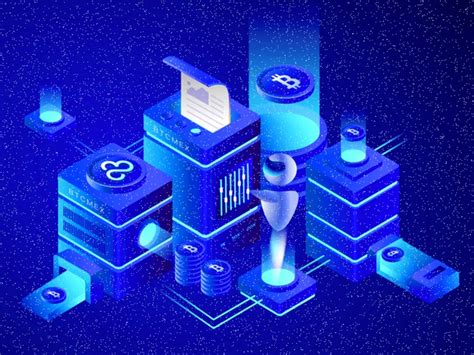Blockchain technology has been disrupting various industries, from finance to supply chain management, with its decentralized and transparent nature. However, its application in the realm of literature is relatively nascent but holds promising potential. Let's delve into how blockchain is influencing the world of literature and what opportunities and challenges it presents.
1. Immutable Ownership and Copyright Protection
One of the significant challenges faced by authors is protecting their intellectual property rights and ensuring they receive proper credit and royalties for their work. Blockchain offers a solution through its immutable ledger, where ownership and transactions are recorded transparently and cannot be altered retroactively. By registering their literary works on a blockchain platform, authors can establish irrefutable proof of ownership and protect their copyrights.
2. Royalty Distribution and Micropayments
Blockchain facilitates direct peertopeer transactions, eliminating intermediaries such as publishing houses and royalty collection agencies. Smart contracts can be programmed to automatically distribute royalties to authors based on predefined terms whenever their works are accessed or sold. This enables more transparent and efficient royalty distribution, especially for independent authors and smaller publishing entities. Additionally, blockchain enables micropayments, allowing readers to pay small amounts for individual chapters, articles, or poems, thus creating new revenue streams for authors.
3. Authenticity and AntiPlagiarism Measures
Plagiarism is a pervasive issue in the literary world, with authors frequently facing the challenge of proving the originality of their work. Blockchain's timestamping feature can provide a solution by establishing a verifiable record of when a piece of content was created or published. This can serve as evidence in cases of copyright infringement or plagiarism disputes, enhancing trust and authenticity in the literary ecosystem.
4. Decentralized Publishing Platforms
Traditional publishing models are often centralized, with a few major publishing houses dominating the industry. Blockchain enables the creation of decentralized publishing platforms where authors can selfpublish their work or collaborate with other creators without the need for intermediaries. These platforms empower authors with greater control over their content, pricing, and distribution, fostering a more diverse and inclusive literary landscape.
5. Tokenization of Literary Assets
Tokenization involves representing realworld assets, such as literary works, as digital tokens on a blockchain. These tokens can be traded, bought, and sold, enabling authors to monetize their intellectual property in new ways. Furthermore, tokenization allows readers to invest in the success of their favorite authors by purchasing tokens tied to future royalties or the appreciation of literary works, thereby creating novel avenues for crowdfunding and patronage.

Challenges and Considerations
While the integration of blockchain technology into the literary domain presents numerous opportunities, several challenges need to be addressed:
- Accessibility and Adoption: Blockchain technology is still relatively complex for the average user, and widespread adoption may require simplification of user interfaces and educational efforts.
- Regulatory Compliance: Legal frameworks surrounding intellectual property rights, royalties, and publishing contracts may need to be adapted to accommodate blockchainbased systems.
- Scalability and Energy Consumption: The scalability of blockchain networks and their environmental impact, particularly in terms of energy consumption, are important considerations that require innovative solutions.
- Interoperability: Ensuring interoperability between different blockchain platforms and standardization of protocols is crucial for seamless integration and compatibility.
Despite these challenges, the intersection of literature and blockchain holds immense promise for revolutionizing the way literary content is created, distributed, and consumed. By leveraging the inherent features of blockchain technology, authors, publishers, and readers can collectively shape a more transparent, equitable, and sustainable literary ecosystem.







